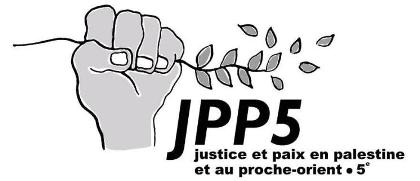Monday, 29 October 2012 12:55 Nassar Ibrahim, Alternative Information Center (AIC)
Palestinian analyst and author Nassar Ibrahim on the dilemma of Western colonial democracy in the aftermath of the “Arab Spring” and the challenge posed by Syria.

Celebrations in Cairo's Tahrir Square have transformed into disquiet as the new Eygptian government is forging strong relations with the US and international financial institutions (Photo: Jonathan Rashad)
“The Western attitude towards democracy: It is fine as long as its outcome is the one we want” […]
“The forces operating in Syria are taking the country towards self destruction […]” Noam Chomsky, Cairo, 23 October, 2012.
Introduction
In the majority of the debates I had with European intellectuals, activists and friends, I always had the feeling that there was a huge difference in the way we were looking at the events of the Arab Spring, especially those concerning Syria. The main problem arose in the different interpretation of the concept of “democracy, freedom and human rights”. Even if everybody's intentions were good and noble and we agreed on the fundamental value of this concept, we had differing positions toward the Arab world revolts.
The way this concept is currently used is often confusing and misleading. The states and media started to use it arbitrarily to describe the so-called “Arab Spring” and in particular the events in Syria. As a result, a large contradiction has arisen between its essence and its translation in reality, creating confusion and doubts among Arab societies. Many social groups, instead of being attracted by the idea of democracy, freedom and human rights, remained quiet and perplexed vis-à-vis a process of change in their countries that is overlain by divisions, blood and chaos.
This raises a question: Has the concept of democracy, freedom and human rights the same meaning for the Western and the Arab peoples? If we do agree on the meaning, why is the position towards the Arab Spring different? If we don't agree on the meaning, from where does this difference stem? How can we again reach a unity regarding these values without hurting the core of the concept on one side, and the specificities of each society on the other?
Sociologists confirm that exporting or importing concepts from one society to another is extremely dangerous. This does not mean, however, that the exchange of ideas or experiences among societies is impossible. On the contrary, despite its huge variety in time and place, human history is one. The translation of experiences is dangerous when we deal with a concept – in our case 'democracy, freedom and human rights' – that is the product of a particular historical development and socio-political context (e.g. European societies) and we impose it, with the same structure, onto a different social reality (e.g. Arab societies). Such a move doesn't take into consideration the effects that this translation can have on the priorities, goals, culture and structure of a particular society.
In this article I am not concerned about amending the policies of Barack Obama, Hollande or Cameron. Nor am I willing to change the points of views of Saudi Arabian princes and Erdogan. My aim is not even that of gaining consensus among the Salafists, the Wahabis or other extremist groups. They are raising the flag of “democracy, freedom and human rights” for reasons and goals that are totally different from those of the vast majority of the European citizens. Therefore, they do not mean the same thing. They exploit the banner of democracy to control the process of change in the Arab world and to keep Arab societies under the Western umbrella. The finest examples of this deeply different understanding are the extremist groups fighting in Syria and the Gulf regimes’ rhetoric.
In this article I am concerned about those who truly believe in democracy, freedom and human rights, those who are ready to struggle for human dignity wherever it is, those who oppose every form of oppression, occupation and discrimination and those who believe in justice and political, cultural, economic and social rights for all people.
So, while we do recognize a common meaning of democracy, freedom and human rights for Western and Arab peoples, why is its translation in the context of the so-called Arab Spring problematic?
http://www.alternativenews.org/english/index.php/news/opinion/5538-colonial-democracy-arab-spring-and-syria.html?start=1
commenter cet article …






